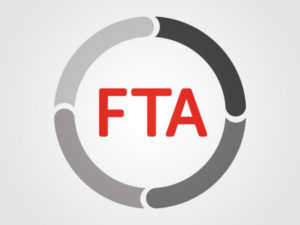Business must be allowed sufficient time to prepare for whatever Brexit agreement is reached between the EU and UK, according to FTA, the business group representing the logistics industry.

With Brexit talks increasingly looking like no progress has been made, with indications that no formal agreement will be reached until October at the earliest, the FTA has written to Michael Gove MP insisting that enough time is given to the logistics sector between a decision being made and any enforcement of new rules.
“Logistics as a sector is fully committed to making a success of Brexit,” says Elizabeth de Jong, policy director at FTA, “but in order to do so, we will need time to prepare for whatever the final agreement looks like. We are not asking for the talks to be prolonged, but for sufficient time to be allowed for those required to undertake new business processes to get ready to do so.
“It looks more and more likely that consensus will not be reached between the two sides until the eleventh hour, with the UK’s transition period for leaving the EU ending on 31 December 2020. Therefore, there will simply not be enough time to put in place all the necessary systems and processes to help trade continue to run smoothly. This will be compounded by the fact that Christmas is traditionally our sector’s busiest time of year and there will be little time available for the necessary changes to be made.
“COVID-19 has shown how vital a robust, fully functional supply chain is to the success of the UK and its economy,” she says, “and while our members stand ready to be as adaptable and flexible as possible, much of the detail of our future trading arrangements as a country is still to be decided – not least what the position will be on customs tariffs and the detail of how checks on food and animals are to be conducted at the UK and EU borders. This level of information is crucial if the UK’s supply chain is to remain strong from 1 January 2021, and we are urging Mr Gove to ensure that we have sufficient time to prepare for whatever is agreed with the EU in political negotiations.”
FTA was the first major trade association to call for an extension to the transition period in March, for purely practical reasons and, as Ms de Jong explains, has written to Michael Gove this week to urge government to consider new options to give the logistics industry sufficient time to prepare for the future trading arrangements with the EU: “Up to a quarter of a million UK businesses will be required to make customs declarations for the first time when the UK leaves the EU, and that will need additional training, staff and customs agents, as well as infrastructure in our ports. Checks on livestock, fresh food and other perishable items will also need to be made at ports and airports, and we need clarity on how and where this process will work.
“Like the rest of the economy, logistics has been hit hard by the COVID-19 crisis, and while the challenges have been huge, goods and services are still moving along our supply chain. Now we need time to ensure we are fully prepared for our next big challenge – the departure of the UK from the EU. That is a challenge which will take months, not minutes, to implement correctly. We need time to futureproof our supply chain and are urging government to listen and react to our concerns, for the sake of UK PLC.”

